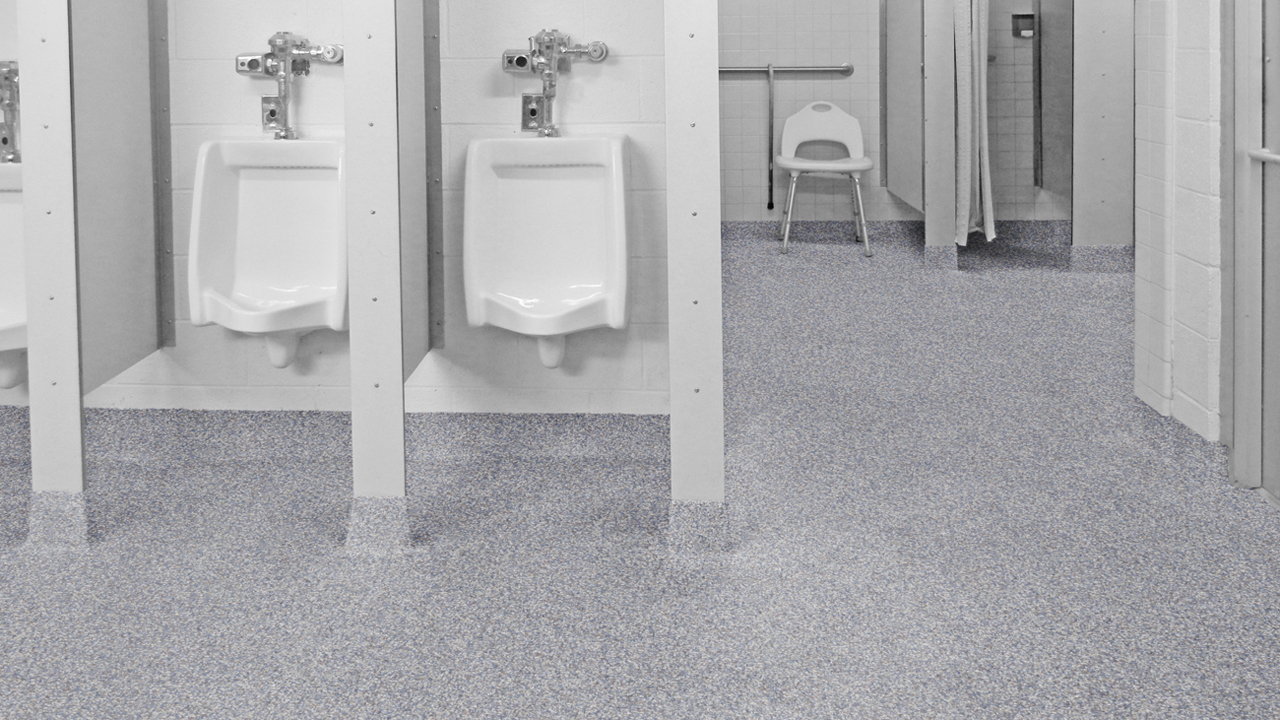Flooring in commercial kitchens is subjected to some of the toughest conditions of all environments.
From extreme temperature changes to exposure to hot oil and liquids, there are many hazards that can cause a kitchen floor to fail. Additionally, the damp conditions of steaming pans and constant foot traffic will all take their toll on a commercial kitchen floor.
Facility managers are also aware that the flooring in commercial kitchens is heavily regulated—and often scrutinized by health inspectors—so flooring systems must support a safe and sanitary environment for food preparation.
If you’re at the evaluation stage and have questions about a new floor for your commercial kitchen, our Everlast® Epoxy flooring experts have rounded up and answered some of the most commonly asked questions to help you make a wise decision.
How durable is epoxy flooring against extreme temperatures, oils, and fats?
It’s quite a challenge to find a flooring solution that can stand up to both the heat of a spilt pan of oil and the cold temperatures of a walk-in chiller or freezer. Most flooring can withstand changes in temperatures for a short time but the surface will eventually chip or crack from the constant stress. If you’ve been coping with floor erosion in your commercial kitchen, you’ll know that a poor floor surface creates a potentially hazardous environment for staff and may leave your business liable for accidents or injuries.
Everlast® Epoxy offers a flooring solution that performs in high temperatures by absorbing and transferring the heat. The thickly troweled-on resinous coating can withstand temperatures up to 158°F without pitting.
One of the most common issues we see in commercial kitchens is cracked freezer floors. Tiles cannot withstand the extremely cold temperature needed to ensure food is stored safely. But those temperatures are no problem for our resinous floors, as freezing conditions have no effect on the durability and hygiene properties of Everlast® Epoxy flooring systems.
Which floor is the most hygienic for a commercial kitchen?
Any food production facility should be maintained to the highest standard—and any sanitary commercial kitchen starts from the floor up. Unfortunately, all grouted floor systems have joints and seams where liquids and food can get trapped, creating a haven for bacteria and mold.
Once debris is absorbed into the substrate, it is practically impossible to eradicate the embedded microorganisms and nasty odors.
The answer is to install a seamless floor that extends to the walls and coves to eliminate any cracks or joins where germs can thrive. Epoxy flooring offers an unbroken surface that also bonds to drains, plumbing pipes, and gas lines to keep the water contained on the surface without seeping through to the substrate.
Everlast® Epoxy is also formulated to include an EPA-registered antimicrobial component throughout every layer of the floor, providing long-term protection from a broad range of germs, fungi, yeast, actinomycetes, and mildew.

How easy is it to clean and maintain an epoxy floor?
Commercial kitchens are messy places! In addition to spills of hot fats and liquids, dry ingredients such as sugar, seasoning, and flour all regularly end up on the floor. The result? A sticky, dirty floor that needs an effective cleaning routine.
We understand that the last thing your staff wants to be doing after a busy shift is buffing and polishing the floor, and with an Everlast® Epoxy floor they won’t have to. We’ve devised a cleaning routine and the detergents you need to make the job fast and simple.
Here are the steps to keeping commercial Everlast® Epoxy kitchen floors scrupulously clean:
- Run over the surface with a vacuum or broom to remove any loose dirt
- Use our Everlast® Floor Care Cleaner Concentrate to cover the floor (5% dilution of concentrate to 95% water).
- Use a deck brush to scrub the cove base before cleaning the floor with a scrubber or cleaning machine.
- Remove any excess cleaner with a squeegee and push into the drains.
There is no fuss and no need for polishing or buffing—all that’s required is a fast, hygienic cleaning routine that will keep your flooring looking new for years to come.
Make the right commercial kitchen flooring choice
If we’ve answered your questions, then you’re ready to choose Everlast® Epoxy flooring and save yourself a costly headache further down the line.
If you’d prefer to speak to our Everlast® Epoxy experts, call our team at (800) 708-9870 to discuss your unique requirements, or order a free flooring sample to see and feel the quality that our flooring for commercial kitchens will deliver.
